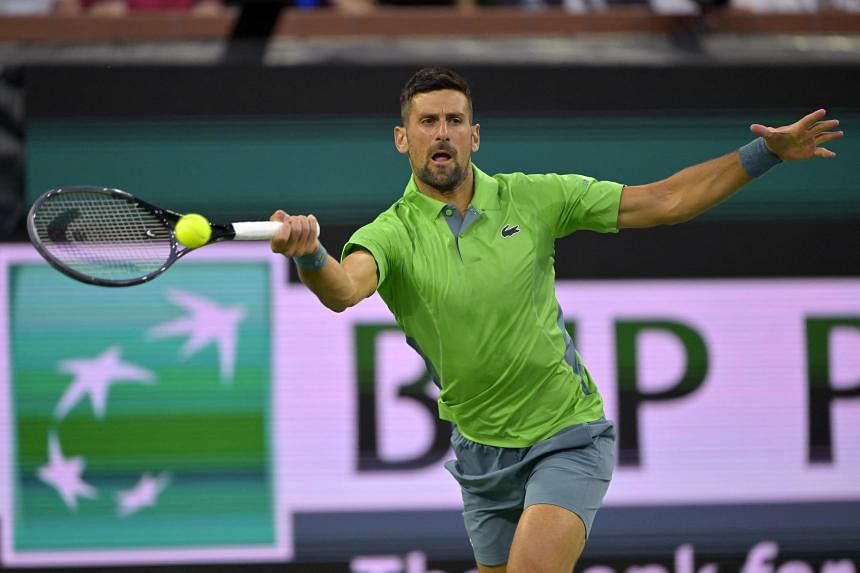LONDON – Changes to the landscape of professional tennis look certain over the next couple of years and, as blueprints are laid out and new tournaments proposed, the players are determined that their voices will be heard.
A proposal for a revamp of the elite game was put on the table by the organisers of the Grand Slams in March while Saudi Arabia, having got its foot in the door through the men’s ATP Tour, is looking to expand its investment.
Everyone, it appears, believes tennis can generate greater revenue but how the sport is structured and how the new cash is distributed, looks likely to be thrashed out over the next 18 months.
The Professional Tennis Players Association (PTPA) thinks that the players should have a place at the table.
“Regardless of the specifics surrounding any proposals, we’re certain that improvements are possible,” PTPA executive director Ahmad Nassar said.
“We’re confident that there’s a tremendous amount of additional value to be unlocked, which would directly benefit the players, fans and the industry as a whole.
“This untapped potential underscores our belief in the need for continuous player input and engagement.”
The PTPA, founded by Novak Djokovic and Vasek Pospisil, is a relatively new voice in a tennis world which has long been governed by a variety of sometimes cooperative, sometimes conflicting organisations.
The Grand Slams – the Australian Open, the French Open, Wimbledon and the US Open – are the biggest tournaments and run their own shows, while the ATP looks after the elite men’s tour and the WTA the women’s.
The International Tennis Federation oversees the whole game, looking after its junior tours, the Olympic competition as well as the Davis Cup and the Billie Jean King Cup.
The Covid-19 pandemic, which caused major disruption at the top end of the game and cost stakeholders hundreds of millions of dollars, was a catalyst for talks about streamlining the governance structure.
Another agent of change is Saudi’s sovereign Public Investment Fund (PIF), which manages more than US$700 billion (S$943.4 billion) in assets and has already altered the landscape in sports like golf and football.
The PIF already has its name on the ATP world rankings and is partnering some high-profile tournaments.
United States Tennis Association chief Lew Sherr, who runs the US Open, last week made public the blueprint for the future drawn up by the organisers of the four Slams.
“There are just too many tournaments that aren’t viable... Ten events drive 80 per cent of all of the economics. Four of them are the Grand Slams plus six others,” he said.
“If we can lean in and try to address the structural issues the sport is facing, maybe there’s a new opportunity.”
The Grand Slams are proposing a streamlined Premier Tour comprising the four Majors and 10 other elite combined men and women’s events, as well as one team competition and the season-ending Finals.
Sherr said the new model, which would relegate some 125 current ATP and WTA events to a lower tier, could generate an additional US$1 billion in annual revenue for the game.
The timing of the Premier Tour proposal is viewed by some as a response to the PIF’s ambition of owning and running an elite Masters tournament, potentially before the year’s opening Grand Slam in Melbourne.
The ATP and WTA, meanwhile, are pushing ahead with efforts to merge their commercial and media rights as they look to make the tours more attractive to broadcasters and sponsors.
The WTA, which is widely expected to take its season finale to Saudi Arabia, said via its spokesperson that it was exploring greater alignment across the sport.
“Currently there is no consensus across the sport over any preferred outcome,” the spokesperson said.
“The WTA will continue to focus on delivering another exciting season and executing our growth plans, while reviewing the proposals that are being put forth by Saudi Arabia and the Grand Slams.”
The ITF said it would remain part of the talks and was committed to ensuring the sport’s long-term growth.
“We can assure you that the betterment of our sport will always be our focus,” a spokesperson said. REUTERS

